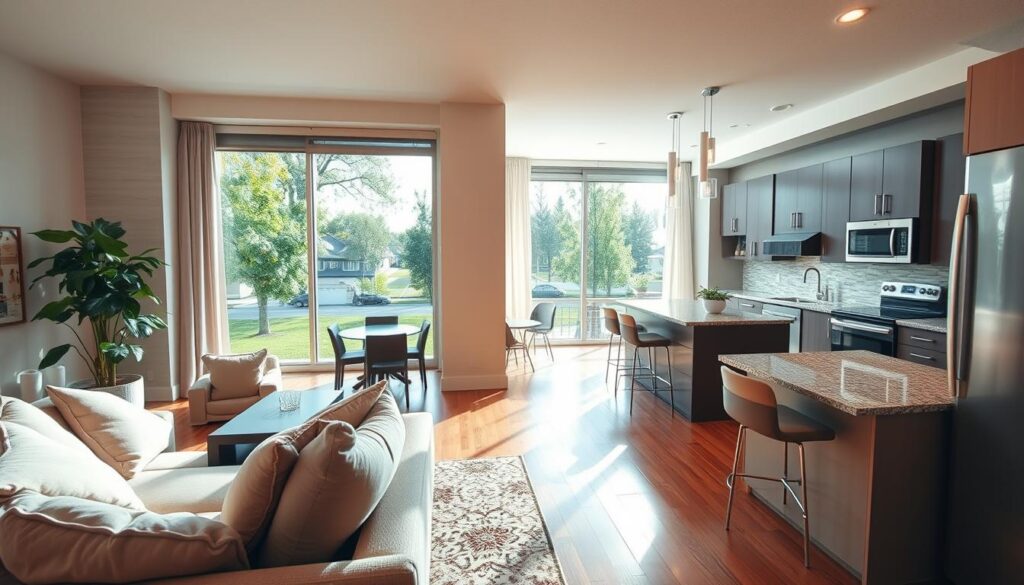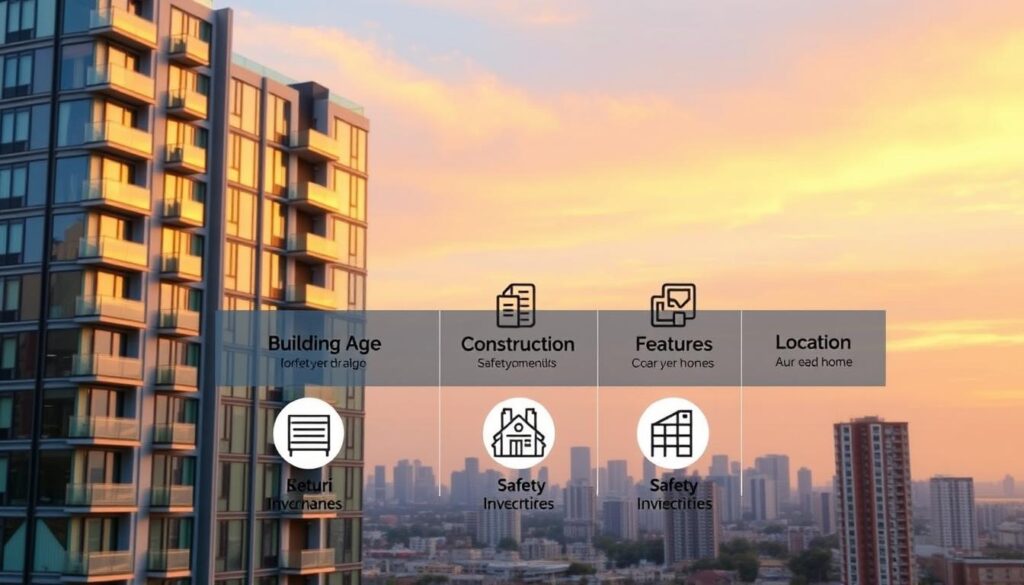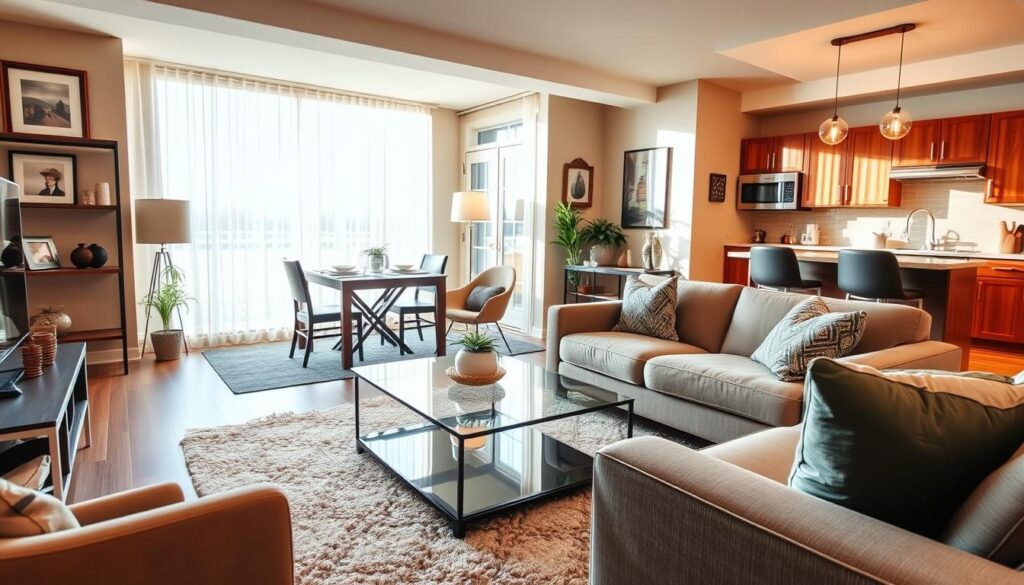As a condo owner in Nebraska, protecting your investment and personal belongings from unexpected damages and liability issues is crucial. Condo ownership comes with unique challenges that differ significantly from traditional homeownership, making comprehensive coverage essential.
I need a policy that addresses these specific needs, covering interior damage, personal belongings, liability protection, and additional living expenses if my condo becomes uninhabitable. Researching various insurance companies in Nebraska helps me understand the varying levels of coverage and premium options available.
Understanding the essentials of condo insurance is vital to selecting the right protection for my specific situation.
Key Takeaways
- Comprehensive coverage is essential for condo owners in Nebraska.
- Condo insurance differs significantly from traditional homeowners insurance.
- Typical coverage includes interior damage, personal belongings, and liability protection.
- Varying levels of coverage and premium options are available from different insurance companies.
- Understanding policy details is crucial for selecting the right protection.
Understanding Nebraska Condo Insurance Basics
As a condo owner in Nebraska, it’s essential to grasp the fundamentals of condo insurance to protect your investment. Condo insurance is a vital component of homeownership, providing financial protection against various risks.

What Condo Insurance Covers in Nebraska
Nebraska condo insurance typically covers your personal property, interior walls, fixtures, and improvements you’ve made to your unit. It’s crucial to understand that your condo association’s master policy generally covers the building’s exterior and common areas. Your individual condo insurance policy works alongside this master policy to provide comprehensive coverage.
How Condo Insurance Differs from Homeowners Insurance
Condo insurance differs significantly from homeowners insurance. While homeowners insurance covers both the structure and land, condo insurance focuses on interior coverage. It’s essential to review your condo association’s master policy to identify coverage gaps that your individual Nebraska condo insurance policy needs to fill. Personal liability protection is also a critical component of condo insurance, covering legal expenses if someone is injured in your unit.
Top Nebraska Condo Insurance Providers
I’ve researched the top condo insurance providers in Nebraska to help you make an informed decision. When selecting a condo insurance company, it’s essential to consider factors such as coverage options, premium rates, and customer service.
Farmers Mutual Insurance Co of Nebraska
Farmers Mutual Insurance Co of Nebraska stands out as a top condo insurance provider, offering excellent coverage at competitive rates. With an annual premium of $279 and an AM Best rating of A, it’s an attractive option for Nebraska condo owners.
Iowa Farm Bureau
Iowa Farm Bureau provides the most affordable condo insurance option in Nebraska, with an annual premium of approximately $186. Their coverage includes $60,000 for personal property and $300,000 for liability, with a $1,000 deductible.
Allstate
Allstate offers a balance of affordability and comprehensive coverage, with an annual premium of $327. Their A+ financial strength rating provides added security for Nebraska condo owners.
State Farm
State Farm’s extensive agent network and competitive rates make it a top choice for Nebraska condo insurance. With an annual premium of around $339 and the highest possible A++ AM Best rating, it’s a reliable option.
American Family
American Family offers specialized coverage options for Nebraska condo owners, although at a higher premium of $611 annually. Their tailored coverage may be beneficial for those with unique insurance needs.
My comparison of these top insurance companies reveals significant price variations for similar coverage levels, emphasizing the importance of getting multiple quotes.
Average Condo Insurance Costs in Nebraska
On average, Nebraska condo insurance costs a specific amount annually, but what does that mean for you? The average cost of condo insurance in Nebraska is $542 per year or $45 per month for $60,000 in personal property coverage, $300,000 in liability coverage, and a $1,000 deductible.
Statewide Premium Averages
The statewide average premium provides a baseline understanding of condo insurance costs. $542 annually is the average cost, but this figure can vary based on several factors including location and coverage levels.
Cost Comparison by Coverage Level
I’ve analyzed how coverage levels affect Nebraska condo insurance costs. Premiums increase proportionally as personal property and liability coverage limits are increased. For instance, increasing personal property coverage from $40,000 to $80,000 will likely raise the premium.
| Coverage Level | Average Premium |
|---|---|
| $40,000 Personal Property, $200,000 Liability | $450 |
| $60,000 Personal Property, $300,000 Liability | $542 |
| $80,000 Personal Property, $400,000 Liability | $650 |
City-Specific Rate Variations
Condo insurance rates vary by city. For example, Lincoln has the lowest average premium at $508, while Omaha averages $529. Other cities like Bellevue ($515), Papillion ($512), and Grand Island ($537) also show variations.

Factors Affecting Your Nebraska Condo Insurance Rates
Several key factors can impact your Nebraska condo insurance premiums. Understanding these factors can help you make informed decisions when choosing a policy.
Location and Property Values
My condo’s location within Nebraska significantly impacts my insurance rates. Urban areas like Omaha typically have higher premiums due to increased property values and crime rates. The location factor is crucial in determining the cost of condo insurance.
Coverage Limits and Deductibles
When setting my coverage limits for personal property, I need to carefully inventory my belongings to ensure I have adequate protection for valuable items. The choice of deductible directly affects my premium costs, with higher deductibles lowering my monthly payments but increasing my out-of-pocket expenses when filing a claim.
Personal Property Value
The value of my personal property is a major factor in determining my Nebraska condo insurance rates. Higher-value belongings require more extensive coverage. I should consider replacement cost versus actual cash value for my personal property when evaluating coverage limits.
Liability Coverage Needs
I need to consider my liability coverage needs carefully, as this protects me financially if someone is injured in my condo or if I accidentally damage others’ property. The right level of liability coverage can provide peace of mind and financial security.
| Factor | Impact on Insurance Rates | Considerations |
|---|---|---|
| Location | Urban areas have higher premiums | Property values, crime rates |
| Coverage Limits | Affects premium costs | Inventory personal belongings |
| Deductibles | Higher deductibles lower premiums | Out-of-pocket expenses |
| Personal Property Value | Higher value requires more coverage | Replacement cost vs. actual cash value |
| Liability Coverage | Protects against financial loss | Consider potential risks |

How to Choose the Right Nebraska Condo Insurance Policy
With various insurance options available, finding the right Nebraska condo insurance policy requires careful consideration of several key factors. To start, I should create a detailed inventory of my belongings to determine the necessary personal property coverage. When comparing policies, evaluating an insurance company’s claim process and customer service reputation is crucial.
Consulting with multiple insurance agents helps in understanding different coverage options and finding a policy that meets my specific needs. Reviewing my condo association’s master policy details is also essential to identify coverage gaps, particularly regarding building components and liability lines.
To finalize my policy, I need to balance deductible amounts with premium costs and consider additional coverage options like additional living expense coverage. Regularly reviewing my policy limits ensures my coverage keeps pace with increasing property values and replacement costs.
